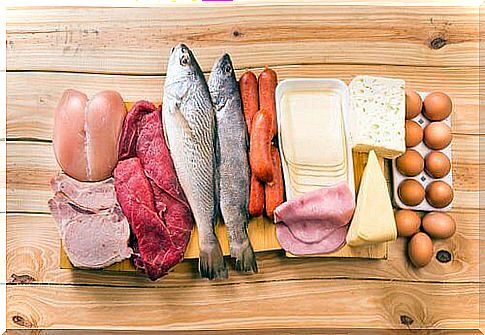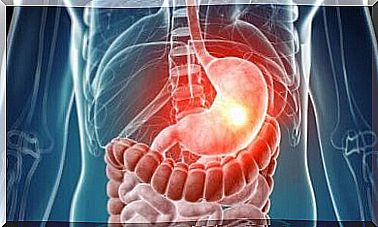Hypothyroidism During Pregnancy

The thyroid is a gland that has multiple functions, not only under normal conditions, but also during pregnancy. It is a very important gland, which is why you should be aware of the various thyroid disorders that exist. For example, hypothyroidism is common during pregnancy.
Hypothyroidism is a thyroid condition that can cause multiple problems. During pregnancy, however, this condition is even more dangerous, as it can negatively affect the development of the baby and delivery.
Fortunately, you can take certain steps to reduce the symptoms of hypothyroidism.
It is important to emphasize that taking thyroid hormones is not always the solution. There are also other strategies that can help you reduce the problems that hypothyroidism causes during pregnancy.
What Are the Symptoms of Hypothyroidism During Pregnancy?
- Intolerance to cold
- Thin and brittle hair
- Melancholy
- Constipation
- Stronger tendency to gain weight
- Loss of appetite
- Irritability
- Dry skin
Strategies to Reduce the Problems Hypothyroidism Causes
1. Increase your consumption of natural sources of iodine

Iodine is the most important substance for the thyroid gland as it contributes to the production of the thyroid hormone. It can therefore help to include iodine-enriched salt in your diet. That way your body can absorb enough iodine, which reduces problems caused by hypothyroidism.
However, you can also get iodine naturally. You do this by eating shellfish or other seafood that contains a lot of iodine. The body uses these foods to replenish the iodine that has been lost.
2. Try to moderate the consumption of soy products
Soy products contain goitrogens that can negatively affect the thyroid hormones in your body. This is especially true if the woman with hypothyroidism becomes pregnant.
Foods containing soy may inhibit thyroid hormone stimulation. This can cause an imbalance and increase the risk of goiter. Further research on this is still necessary.
3. Maintain a Balanced Diet

Maintaining a balanced diet is one of the best strategies to reduce the negative effects that hypothyroidism can have during pregnancy.
The foods you eat should contain all the nutrients that the mother and fetus need during this time. Eat mostly organic foods and eat 6 times a day.
4. Consume Natural Oils
Natural oils are just as important during pregnancy as good fatty acids. Not only do they support the health of the fetus, they are also necessary for various processes in the mother’s body.
Natural oils may be able to help reduce the problems that hypothyroidism causes during pregnancy. You can get natural fatty acids and natural oils by eating:
- eat nuts and seeds, such as walnuts and flaxseed
- other products, such as avocados and oily fish
5. Make sure you get more protein

Proteins contain nutrients that ensure that the body can perform all functions properly. Eating enough protein helps your body to provide all processes with what is needed in a balanced way. You can get the healthiest proteins from various products such as:
- nuts
- green vegetables
- white meat
Protein makes both you and your baby feel good.
Conclusion
If you make sure your body is supplied with enough nutrients, the problems caused by hypothyroidism may go away on their own. That way you will have less to worry about during your pregnancy. This will also make you less stressed.
Of course, it is always wise to consult a doctor about the most suitable approach for you.









